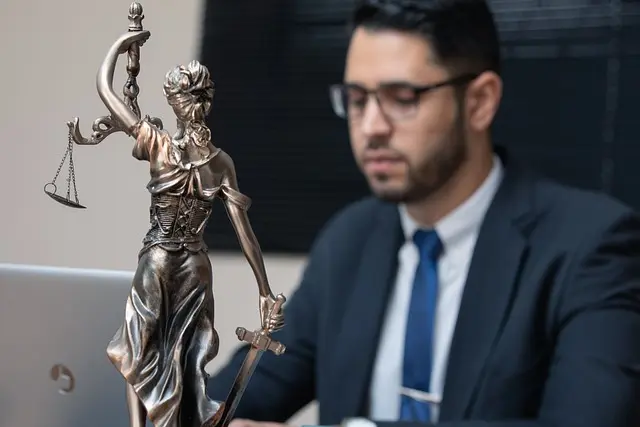Car Accidents
Car accidents are among the most common personal injury cases. These incidents often result from negligence, including distracted driving, speeding, or driving under the influence. Legal ramifications in car accident cases typically revolve around proving fault and determining liability. Victims must demonstrate that the other driver was negligent and that such negligence caused their injuries. Damages may include compensation for medical expenses, loss of wages, pain and suffering, and property damage.
Slip and Fall Accidents
Slip and fall accidents occur when someone is injured on another person's property due to hazardous conditions. These cases often involve wet floors, uneven surfaces, or poor lighting. The legal concept of "premises liability" comes into play, where property owners are required to maintain a safe environment. If they fail to do so, they can be held liable for injuries. Victims must prove that the property owner knew or should have known about the dangerous condition and did nothing to fix it.
Medical Malpractice
Medical malpractice cases arise when healthcare professionals fail to provide the standard of care, resulting in patient injury. Common scenarios include surgical errors, misdiagnosis, and incorrect treatment. Legally, these cases are complicated and often require expert testimony to establish that the medical professional breached their duty of care. Damages may cover medical costs, rehabilitation, and lost income, along with compensation for emotional distress and long-term disabilities.
Workplace Accidents
Workplace accidents can result in severe injuries and have a significant impact on an individual's livelihood. Cases may involve machinery malfunctions, falls from heights, or exposure to hazardous substances. Workers' compensation laws vary by state but generally require employers to cover medical expenses and lost wages. In some cases, injured workers may also have grounds for a personal injury lawsuit, especially if third-party negligence is involved.
Product Liability
Product liability cases emerge when a defective product causes injury. They can be complex as they may involve manufacturing defects, design flaws, or inadequate warnings. Manufacturers, distributors, and retailers can all be held accountable. Legal ramifications typically involve proving that the product was defective and that this defect directly caused the injury. Compensation may include costs for medical treatment, lost wages, and pain and suffering.
Dog Bites
Dog bite incidents often lead to personal injury claims, especially when the dog owner is found negligent. Legal responsibility can vary depending on the jurisdiction. Some places follow a "strict liability" rule, where the owner is accountable regardless of the dog's history. Others may require proof of negligence or that the owner knew of the dog's violent tendencies. Damages can cover medical expenses, psychological counseling, and lost income.
Assault and Battery
Assault and battery cases are unique among personal injury claims as they involve intentional actions rather than negligence. These cases can lead to criminal charges as well as civil claims for damages. Victims can seek compensation for medical expenses, lost wages, and emotional distress. Additionally, punitive damages may be awarded to deter further wrongful conduct.
Nursing Home Abuse
Nursing home abuse cases involve mistreatment or neglect of elderly residents by caregivers. These can be emotionally charged cases, often involving physical abuse, emotional manipulation, or financial exploitation. Legally, these cases require proving that the nursing home and its staff failed to provide adequate care. Damages can include compensation for medical treatment, pain and suffering, and in severe cases, wrongful death.
Construction Accidents
Construction sites are inherently dangerous, leading to a higher incidence of accidents. These cases often involve falls, equipment failures, or exposure to harmful substances. Legal responsibility can be complicated, involving multiple parties such as contractors, subcontractors, and equipment manufacturers. Victims may claim workers' compensation and, in some situations, file a personal injury lawsuit for additional damages.
Premises Liability
Premises liability encompasses a broad range of injury cases occurring on someone else's property, extending beyond slip and falls. These cases might involve accidents caused by inadequate security, swimming pool injuries, or fires. Legal responsibilities generally focus on the property owner's duty to keep the area safe. Victims need to demonstrate that the owner was aware or should have been aware of the dangerous condition and failed to address it.
Wrongful Death
Wrongful death cases arise when an individual dies due to someone else's negligence or intentional actions. These cases often involve car accidents, medical malpractice, or defective products. The legal ramifications include proving that the defendant's actions caused the death and ensuing damages. Family members may seek compensation for funeral expenses, loss of income, and emotional suffering.
Conclusion
Personal injury cases cover a wide array of incidents, each with unique legal considerations and ramifications. Victims seeking compensation must often demonstrate negligence or intentional wrongdoing and provide substantial evidence of their injuries and related damages. Understanding the different types of personal injury cases can help individuals better navigate the legal system and secure the compensation they deserve.

